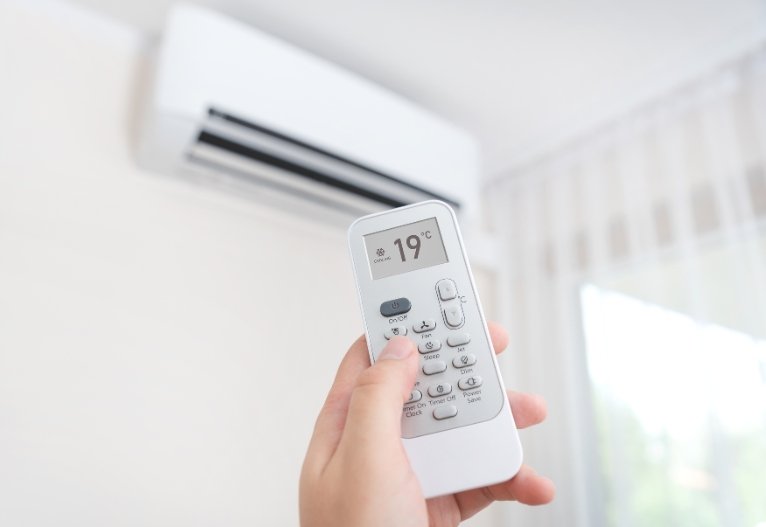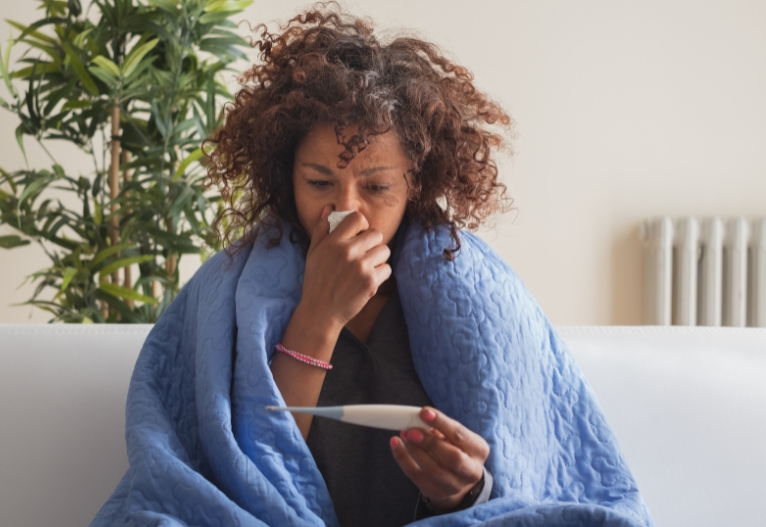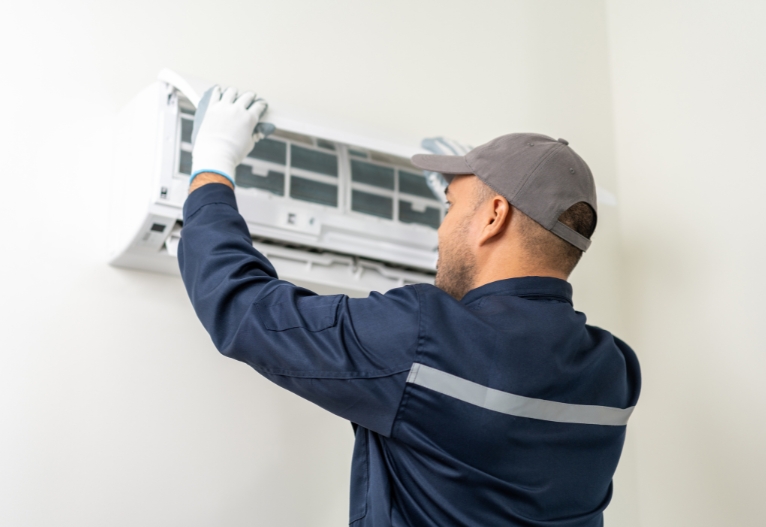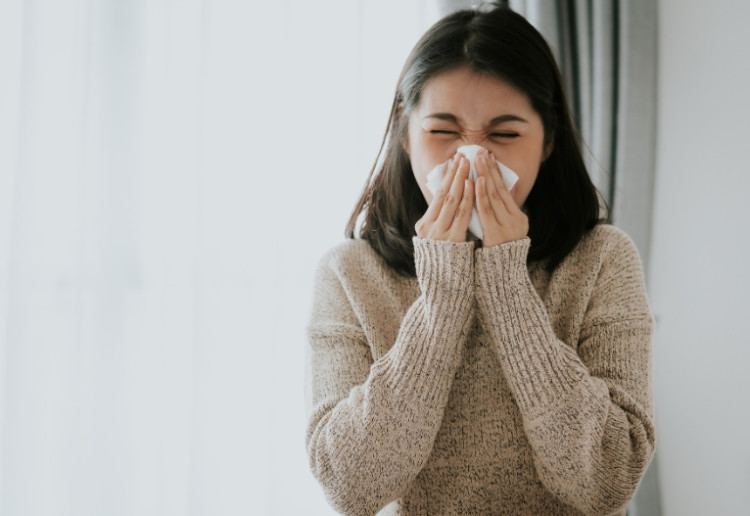During a heatwave, few of us think twice about turning on the air conditioner – but is it bad for your health? Dr Anna Pham dives into the question with some very welcome tips.

Anna Pham is a passionate advocate for the financial well-being of medical professionals. She founded Doctors Helping Doctors Grow (DHDG), a platform dedicated to advancing the financial literacy of doctors. This venture complements her entrepreneurial spirit as the founder and owner of Picton Family Medical Centre, Narellan Medical and Skin and Dr Anna’s Medispa, where she draws on her expertise in healthcare leadership and entrepreneurship.

Air conditioning can feel like a blessing during Australia’s intense summer heatwaves, keeping homes and offices comfortably cool. But a lot of the time, people don’t stop to think about whether their air conditioner is bad for their health. This is a common problem I see as a general practitioner.
There are obvious benefits to popping on the air conditioner when the temperature ramps up, but there are also plenty of health concerns linked to these appliances, all of which are too quickly forgotten.
So, let’s take a closer look at these drawbacks.
Poor filter quality means more than just dusty air
Air conditioners recycle the air that’s already circulating around your home, meaning dust, allergens, and pollutants can repeatedly cycle through your living spaces. If your air conditioner has a basic or neglected filter, it won’t effectively trap these particles, leaving you breathing polluted indoor air.
In fact, indoor air can be up to five times more polluted than outdoor air. So even when you think you’re sitting in a nice, cool and clean environment, you’re actually breathing in harmful pollutants, bacteria and allergens.

Poorly maintained filters can also cause headaches, fatigue, and respiratory discomfort. And if you have prolonged exposure to these pollutants, you can even end up with chronic health issues, contributing to what’s known as “sick building syndrome,” where occupants frequently feel unwell without any obvious cause.
Sound familiar?
Allergies and respiratory concerns
Your air conditioner can unintentionally become an allergen-generating machine that distributes these harmful pollutants around the clock if you don’t clean your unit properly.
Pollutants like pollen, pet dander, dust mites, and mould spores can easily spread throughout your home just by circling through the ventilation system, significantly worsening allergies or asthma. And with around 11% of Australians suffering from asthma, a clean indoor environment is a must.
Often, unserviced AC units are culprits for mould and dust accumulation, which triggers allergy symptoms, asthma attacks, nasal congestion, and pesky, persistent coughs.
Is your AC spreading germs?
Most people don’t recognise that their air conditioners can circulate germs, which ultimately leads to spreading illnesses. We saw this more than ever in the COVID-19 pandemic when poorly ventilated areas were blamed for increasing the transmission of the virus dramatically.

There are also plenty of studies out there to show that interconnected air conditioning systems in commercial buildings can move infectious droplets between rooms. And while domestic split systems typically pose less risk, commercial or ducted systems should be monitored closely.
At the end of the day, regular maintenance and adequate ventilation can reduce the risk of circulating germs and harmful pathogens.
Dry air and skin irritation
If you like to keep up with your skincare routine, spending long periods in air-conditioned environments can actually dry out your skin, eyes, and respiratory passages. Air conditioners are known to remove moisture from indoor air, often leaving humidity levels lower than our skin needs. This dryness can lead to irritated skin, itchy eyes, dry nasal passages, and sore throats.

People with existing skin conditions like eczema might notice increased irritation more than others. Dry nasal passages also lower your natural immunity, making you more susceptible to common colds. Try aiming for keeping humidity at 40-50% indoors – your skin and respiratory system will thank you for it.
Do HEPA filters help the problem?
HEPA (High-Efficiency Particulate Air) filters are better than standard filters and are capable of trapping up to 99.97% of airborne particles as tiny as 0.3 microns. These powerful filters remove allergens, smoke, fine dust, and even bacteria and certain viruses from your indoor environment.
As practitioners, we often recommend installing HEPA filters to drastically improve indoor air quality, particularly during periods of high pollution like bushfires or heavy pollen seasons. Although HEPA filters can be expensive, the investment is worth it when it reduces respiratory irritation and improves overall health, especially for those with sensitivities.
Simple tips to keep your air conditioner healthy
Here are a few tips I recommend patients follow when they reach for the air con remote:
- Clean or replace your AC filters every two to three months, particularly during peak use
- Consider investing in better filters like HEPA or high MERV-rated filters
- Maintain optimal indoor humidity (40-50%) with humidifiers if needed
- Open windows periodically or use ventilation features on your AC when outdoor air quality is good
- Introduce houseplants like peace lilies or spider plants for natural air purification
- Drink plenty of water to counteract dryness from air conditioning

Key takeaways for healthier air conditioning
Air conditioning is a real lifesaver when it comes to staying comfy in Australia’s brutal heat, but it’s good to keep in mind some of the not-so-great aspects. If you stay on top of regular maintenance, use good filters, manage humidity, and make sure your place has enough airflow, you can relax and enjoy the cool air without worrying about your family’s health.
Do you keep your air conditioner regularly maintained? Leave us a comment.





-

-
-
ChiWren, QLD
- 30 Nov 2025
👍
0 Likes
-

-
-
Meedee, QLD
- 20 Sep 2025
👍
0 Likes
-

-
-
ChiWren, QLD
- 30 Aug 2025
👍
0 Likes
-

-
-
BH516706, NSW
- 11 Aug 2025
👍
0 Likes
-

-
-
JH1981, WA
- 10 Aug 2025
👍
0 Likes
-

-
-
BH516524, TAS
- 01 Jun 2025
👍
0 Likes
-

-
-
BH519636, NSW
- 01 Jun 2025
👍
1 Likes
-

-
-
BH516524, TAS
- 08 May 2025
👍
0 Likes
-

-
-
BH516496, QLD
- 02 May 2025
👍
0 Likes
-

-
-
ChiWren, QLD
- 02 May 2025
👍
0 Likes
-

-
-
BH516524, TAS
- 26 Apr 2025
👍
0 Likes
-

-
-
loves_coffee_and_wine, SA
- 22 Apr 2025
👍
0 Likes
-

-
-
loves_coffee_and_wine, SA
- 02 Apr 2025
👍
0 Likes
-

-
-
BH516868, VIC
- 28 Mar 2025
👍
0 Likes
-

-
-
BH519636, NSW
- 27 Mar 2025
👍
0 Likes
-

-
-
sars_angelchik, TAS
- 27 Mar 2025
👍
0 Likes
-

-
-
BH516504, VIC
- 26 Mar 2025
👍
0 Likes
-

-
-
BH516570, WA
- 26 Mar 2025
👍
0 Likes
-

-
-
JH1981, WA
- 25 Mar 2025
👍
0 Likes
Post a commentTo post a review/comment please join us or login so we can allocate your points.